The Importance of Speech Therapy in Social Skills Development
Social communication is fundamental to building relationships, participating in community life, and achieving personal and professional success. Speech therapy plays a crucial role in teaching and enhancing these skills across various age groups, including children, adolescents, and adults. By focusing on both verbal and non-verbal communication, speech-language pathologists help individuals overcome social difficulties, improve interactions, and develop confidence in diverse settings.
Understanding Social Communication and Social Skills
What is social communication and social skills?
Social communication is the way individuals use language, gestures, facial expressions, tone of voice, and other non-verbal cues to interact effectively with others. It involves understanding social rules, adapting language to different situations, and reading unspoken cues like body language and facial expressions. Key aspects include turn-taking in conversations, maintaining eye contact, interpreting emotions, and understanding humor or sarcasm.
Social skills are the behaviors that help us succeed in social interactions. These include sharing, showing empathy, resolving conflicts, listening actively, and initiating conversations. These skills are usually learned through social experiences and vary across different cultures and environments.
Supporting social communication skills involves teaching and practicing specific behaviors, offering feedback, and encouraging real-world application. This helps individuals navigate social settings confidently, whether they are children learning to make friends or adults engaging in professional relationships.
Core components of social communication
Understanding social communication requires knowledge of several interconnected components:
| Component | Description | Example |
|---|---|---|
| Pragmatics | The use of language in social contexts, including rules for conversations, politeness, and appropriate responses | Knowing to say "please" and "thank you" |
| Theory of Mind | The ability to understand others' thoughts, feelings, and perspectives | Recognizing a friend’s sadness and offering comfort |
| Social Cognition | How we interpret social cues, facial expressions, and body language | Reading someone’s crossed arms as frustration |
| Language Processing | The comprehension and production of language during interactions | Following a multi-step instruction |
| Social Emotional Skills | Recognizing and managing emotions in oneself and others | Showing empathy during a disagreement |
The role of social and cultural context
Social skills are deeply rooted in cultural norms and social environments. Different cultures have distinct expectations about greetings, personal space, eye contact, and ways of expressing emotions. For example, in some cultures, direct eye contact is seen as a sign of confidence; in others, it may be considered intrusive.
Because of this, effective social communication involves understanding and respecting cultural differences. Speech therapists often tailor interventions to align with an individual’s cultural background, helping them navigate social norms relevant to their environment.
In summary, social communication and social skills are essential for building relationships, participating in communities, and functioning successfully across various settings. They encompass verbal and non-verbal cues, social understanding, and cultural awareness, and can be developed and improved through targeted strategies and practice.
How Speech Therapy Enhances Social Communication Skills
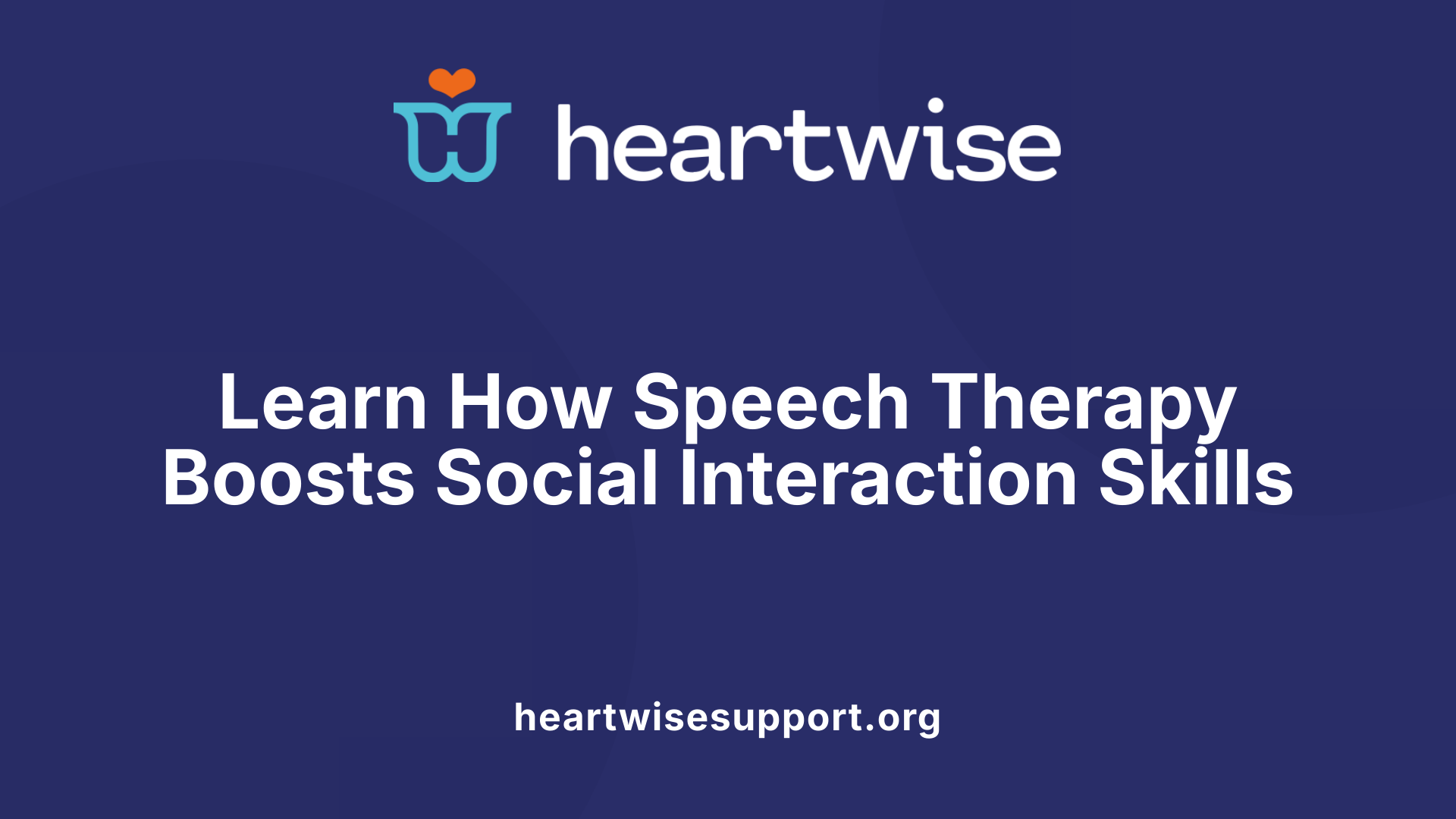
Techniques like social stories, role-playing, social groups, video modeling
Speech therapy employs various engaging methods to develop social skills. Social stories, created by Carol Gray, are personalized narratives that teach children about social norms and expected behaviors in different situations. Role-playing allows individuals to practice social scenarios in a safe environment, helping them understand appropriate responses and body language. Social skills groups provide a peer-supported setting where participants can learn from others, practice turn-taking, and develop friendships. Video modeling involves watching videos that demonstrate correct social interactions, which helps individuals imitate behaviors and recognize social cues. These methods are effective because they combine visual, auditory, and hands-on learning, making complex social concepts accessible.
Strategies to teach pragmatic language skills, including turn-taking and emotion recognition
Core social communication skills such as turn-taking, perspective-taking, and emotion recognition are central goals in speech therapy. Therapists use structured activities to teach turn-taking, emphasizing patience and shared participation in conversations. To enhance understanding of emotions, therapists may use social stories featuring facial expressions and scenarios, along with activities like emotion recognition games. These strategies enable individuals to interpret nonverbal cues and respond empathetically, which are crucial for meaningful social interactions.
Use of visual aids and structured activities for reinforcement
Visual aids like pictures, social stories, and cue cards support understanding and remembering social rules. They serve as reminders during social interactions, helping individuals apply learned skills in real-time. Structured activities such as storytelling, conversation practice, and social scripts help reinforce these skills through repetition and routine. Incorporating games and activities tailored to the individual’s interests makes learning enjoyable and meaningful. Integrating these evidence-based strategies into therapy sessions fosters skill generalization, allowing individuals to transfer learned social behaviors to everyday settings—ultimately improving their confidence and quality of social life.
Benefits of Speech Therapy in Social Interaction
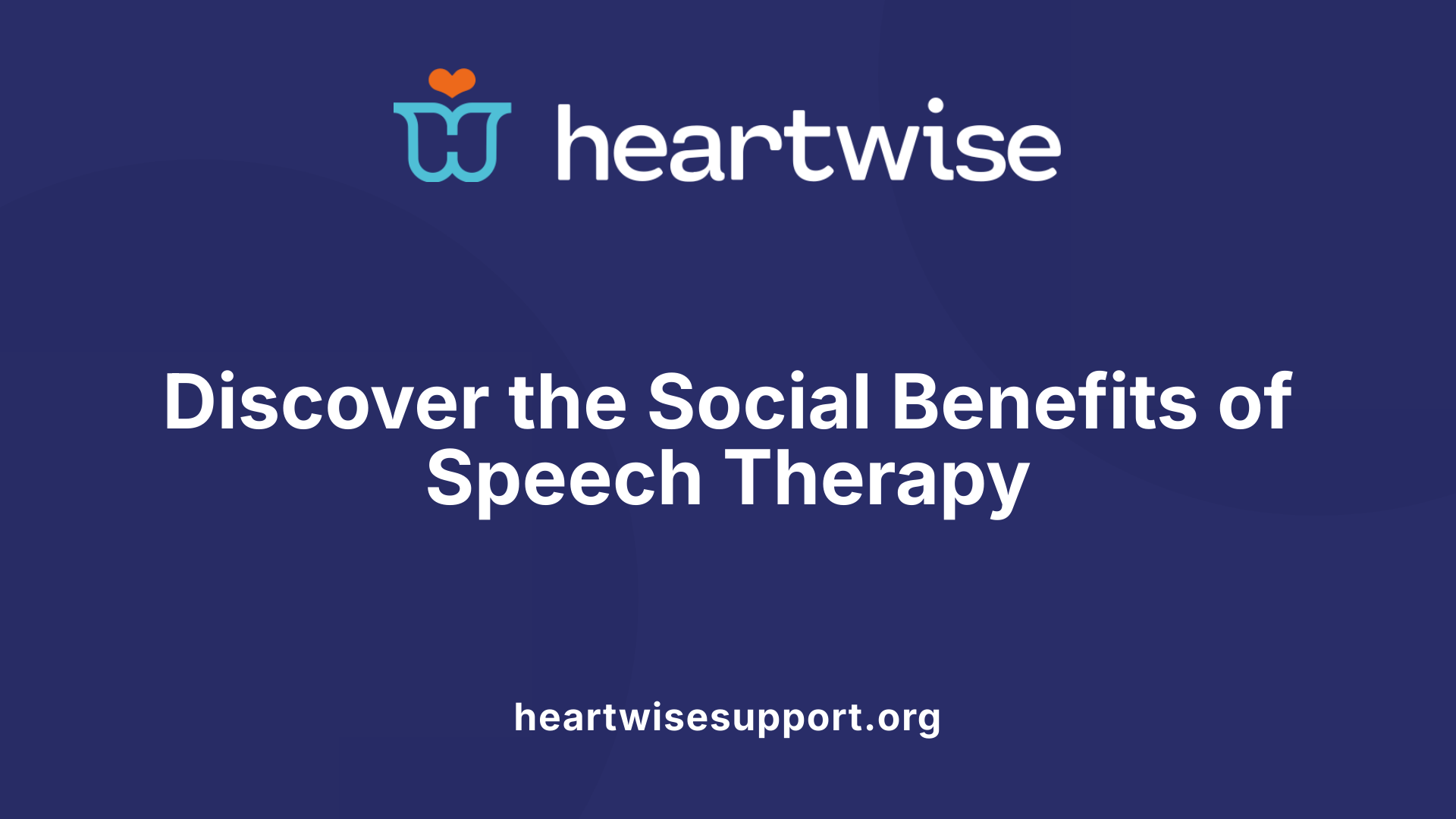 Speech therapy offers significant advantages for individuals aiming to improve their social interaction abilities. One of the primary benefits is the development of the ability to use language in ways that facilitate social connections. Individuals learn how to greet others appropriately, initiate and sustain conversations, and express their emotions clearly, which are vital for forming and maintaining relationships.
Speech therapy offers significant advantages for individuals aiming to improve their social interaction abilities. One of the primary benefits is the development of the ability to use language in ways that facilitate social connections. Individuals learn how to greet others appropriately, initiate and sustain conversations, and express their emotions clearly, which are vital for forming and maintaining relationships.
Core social rules, such as turn-taking during conversations, making eye contact, and understanding body language, are also emphasized in therapy. These skills help individuals interpret social cues, recognize facial expressions, and respond appropriately in various social situations.
Therapists utilize engaging activities like role-playing, social stories, and social skills groups to reinforce these concepts. Role-playing allows individuals to practice real-life interactions in a safe setting, building confidence and competence over time. Social stories provide visual and narrative guidance tailored to specific social scenarios, aiding understanding and retention.
Social skills groups create a supportive environment for peers to practice social norms and behaviors, fostering peer learning and social confidence. Alongside direct instruction and modeling, feedback from therapists helps refine social responses.
Furthermore, speech-language pathologists often collaborate with caregivers and educators. This teamwork ensures that social skills learned during therapy are reinforced across home and school environments, promoting generalization.
Overall, speech therapy enhances social confidence, improves communication skills, and equips individuals with practical tools for meaningful social engagement, which can lead to better personal and professional relationships.
Target Groups for Social Communication Therapy
Who are the target groups for social communication therapy?
Social communication therapy is designed for a wide range of individuals who face challenges in interacting effectively with others. Primarily, it targets children and adolescents from preschool through high school, adapting to their developmental stages.
These groups often include children who struggle with social norms, such as initiating conversations, maintaining eye contact, taking turns, understanding body language, and recognizing social cues. By addressing these foundational skills, therapy helps build confidence and fosters meaningful social connections.
Beyond children, social communication therapy also benefits adults with social challenges, such as those with autism spectrum disorder, social anxiety disorder, intellectual disabilities, or aphasia. The therapy aims to improve their ability to navigate social environments, whether in personal relationships, workplaces, or community settings.
Sessions are usually conducted by trained professionals like speech-language pathologists. These clinicians utilize activities like role-playing, social stories, video modeling, and real-world practice to develop practical social skills.
Overall, this therapy supports individuals of all ages who need assistance in understanding and using social language effectively. Whether to enhance everyday interactions, foster friendships, or improve professional communication, social communication therapy plays a vital role in increasing social competence and life satisfaction.
Importance of Speech Therapy for Social Skills Across Age Groups
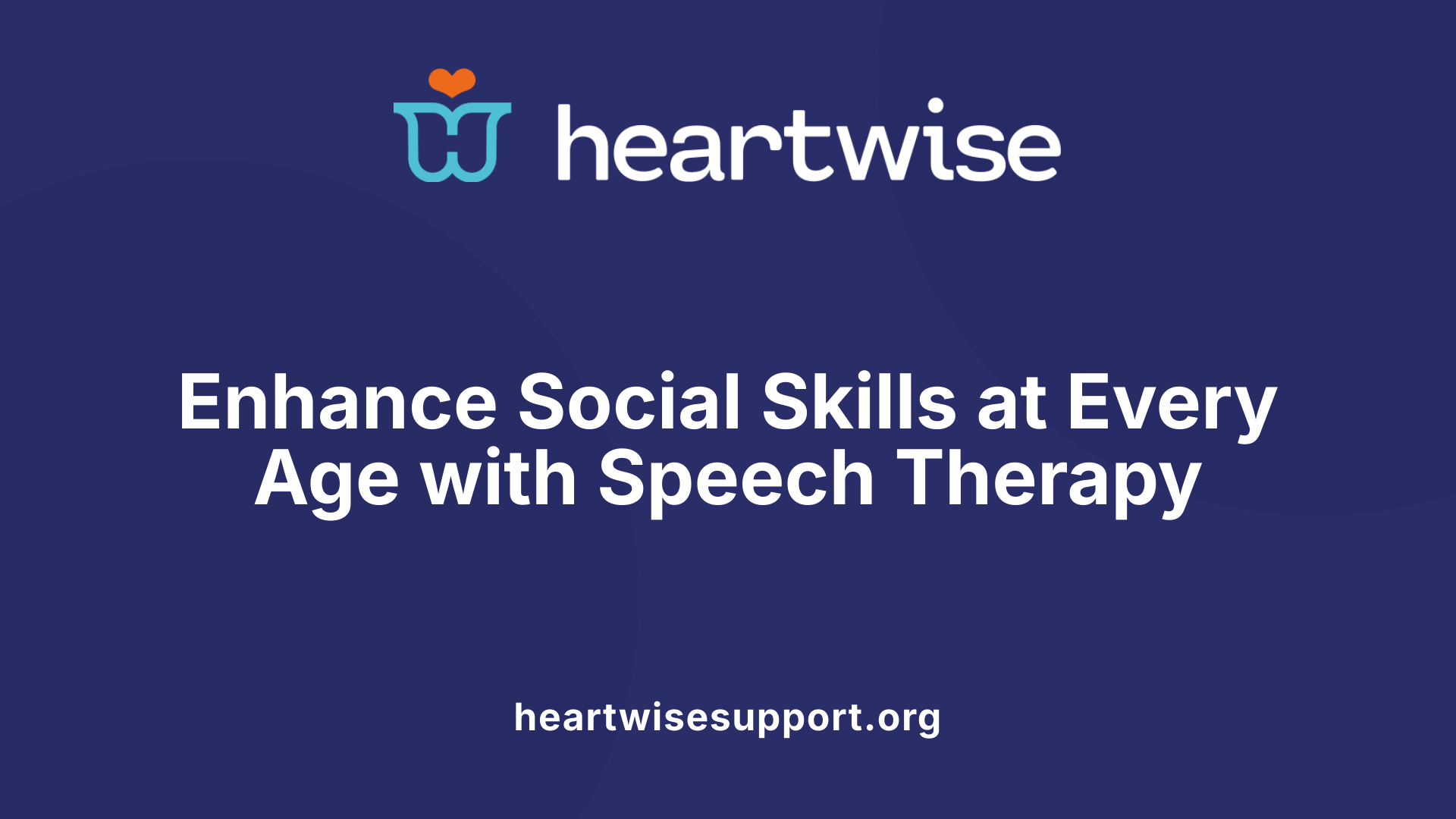
Why is speech therapy important for social skills development across different age groups?
Speech therapy plays a vital role across all age groups in enhancing social communication abilities. It helps individuals improve both verbal and nonverbal interactions, which are essential for building relationships, participating in conversations, and functioning effectively in social environments.
For children, early intervention through speech therapy builds the foundation for successful socialization. Therapists focus on teaching fundamental skills such as greetings, turn-taking, understanding social cues, and recognizing emotions. These skills are crucial for participating in classroom activities, making friends, and developing confidence.
Adolescents face increased social demands, including navigating peer relationships, academic challenges, and extracurricular activities. Speech therapy helps them refine pragmatic language skills like perspective-taking, understanding idioms, and responding appropriately in varied social contexts. Techniques such as social stories and role-playing prepare teens for social interactions in school and community settings.
In adulthood, social communication continues to be critical, especially in the workplace and personal relationships. Speech therapy supports adults in improving skills like initiating conversations, understanding non-verbal cues, and managing social norms. For those with social anxiety or disorders like autism spectrum disorder, targeted therapy can boost confidence, reduce misunderstandings, and enhance social engagement.
Speech-language pathologists utilize tailored methods such as modeling, video feedback, social stories, and group activities to teach social skills. These evidence-based strategies help individuals apply what they learn in real-world situations, promoting independence and social competence.
In summary, speech therapy is essential for developing social skills throughout life. It equips people to communicate effectively, fosters meaningful relationships, and enables full participation in social, educational, and professional environments.
Assessment Methods for Social Communication Skills and Disorders
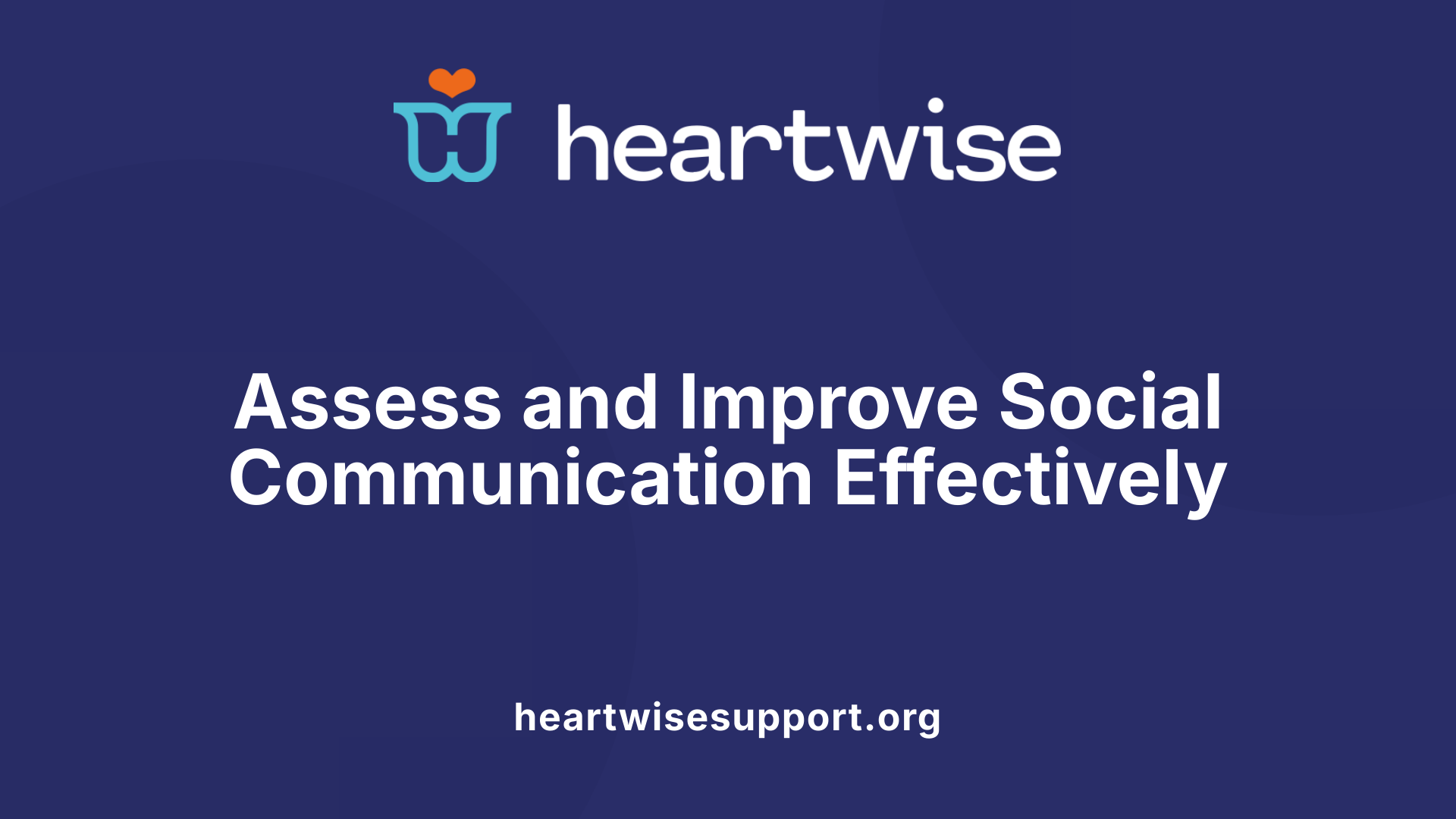
What methods are used to assess social communication skills and disorders?
Assessing social communication involves a combination of standardized tests, observational techniques, and reports from caregivers and educators. These methods help professionals determine specific strengths and weaknesses, guiding tailored intervention strategies.
Standardized tools such as the Children’s Communication Checklist-2 (CCC-2), Pragmatic Language Skills Inventory, and the Clinical Evaluation of Language Fundamentals (CELF) evaluate pragmatic language, social awareness, conversational skills, and other communication styles. These assessments provide objective data on a person’s ability to understand and use language in social contexts.
In addition to formal tests, observational assessments play a vital role. These involve watching individuals in naturalistic settings like playgrounds or classroom interactions, as well as structured situations designed to elicit specific behaviors. Observers analyze how well someone initiates conversations, maintains eye contact, interprets body language, and responds to social cues.
Multiple interaction partners and environments are used to obtain a comprehensive view of social skills. For example, analyzing peer interactions and conducting conversational sampling help identify core issues such as limited reciprocity, irrelevant responses, or difficulty understanding nonverbal cues. These samples are often collected across different settings to ensure ecological validity.
Caregiver and teacher questionnaires, along with self-rating scales for older individuals, contribute valuable insights. They describe everyday social behaviors and challenges from those who observe the individual regularly.
It is important that all assessment methods are culturally sensitive and consider the individual’s developmental stage. Moreover, comprehensive evaluation includes reviewing developmental history, potential overlapping conditions like autism spectrum disorder (ASD) or traumatic brain injury (TBI), and contextual factors. This integrative approach ensures accurate diagnoses and effective intervention planning.
In summary, combining standardized assessments, naturalistic and structured observations, and reports from people familiar with the individual provides a thorough understanding of social communication abilities and difficulties, enabling targeted and effective support.
Approaches, Curricula, and Resources in Social Communication Therapy
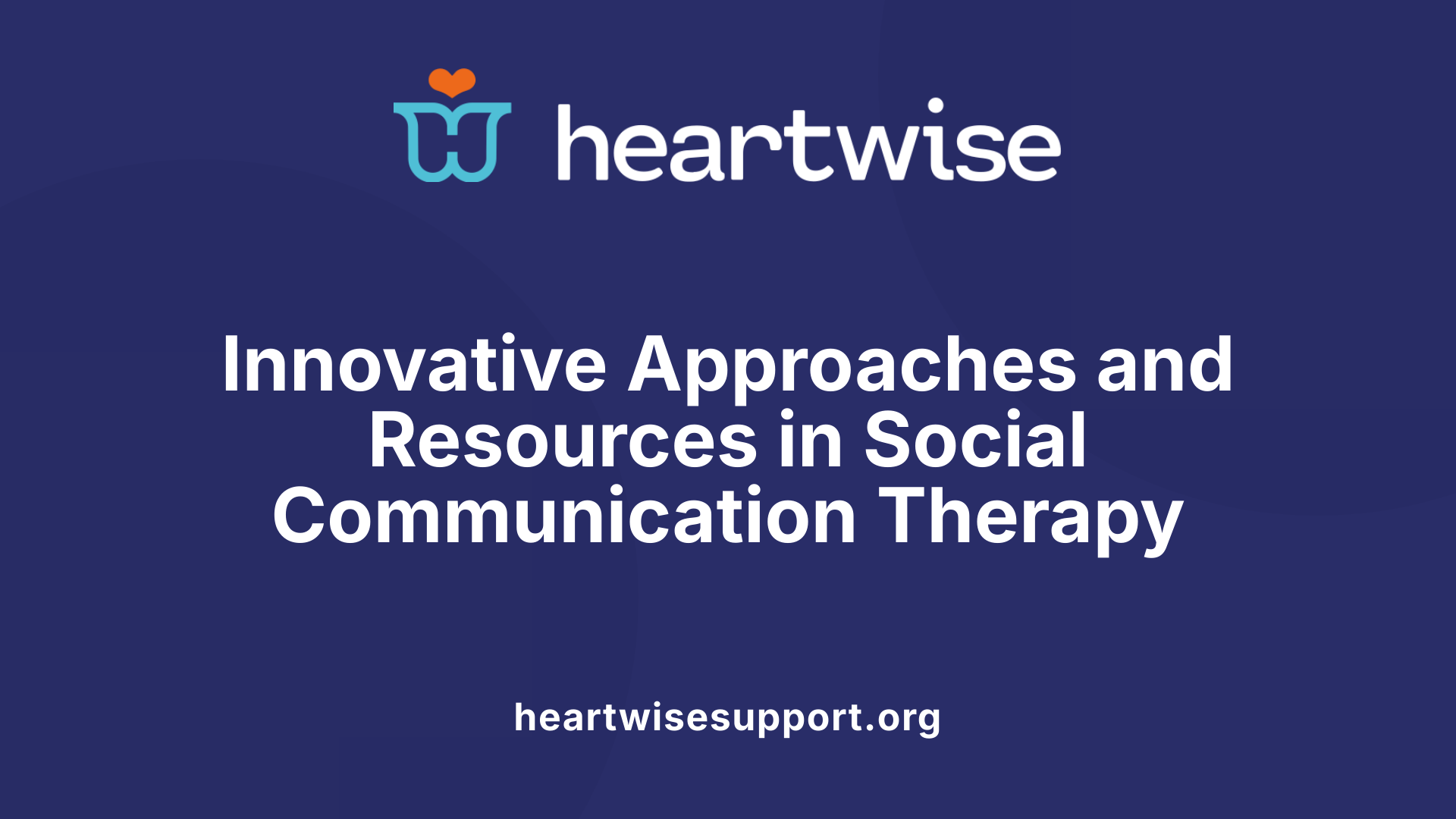 Social communication therapy uses a variety of evidence-based approaches to help individuals develop their pragmatic language skills and social understanding. Therapists often incorporate techniques such as pragmatic language interventions, which focus on improving the use of language in social contexts, and social stories, which help explain social norms and appropriate behaviors through simple, relatable narratives.
Social communication therapy uses a variety of evidence-based approaches to help individuals develop their pragmatic language skills and social understanding. Therapists often incorporate techniques such as pragmatic language interventions, which focus on improving the use of language in social contexts, and social stories, which help explain social norms and appropriate behaviors through simple, relatable narratives.
Another widely used method includes social scripts, which provide individuals with prepared phrases and responses to common social situations, boosting confidence and fluency in interactions. Techniques such as role-playing and comic strip conversations enable clients to practice conversational skills in a structured and engaging manner.
Curricula like SCORE skills and programs such as Social Stories™ form an essential part of many intervention plans. SCORE skills concentrate on teaching foundational social behaviors such as turn-taking, sharing, and resisting impulsive behaviors. Social Stories™ are personalized stories designed to illustrate specific social situations, helping children understand what is expected and how to behave.
The use of technology in social skills training has grown significantly, with online therapy platforms providing accessible and flexible options. Video modeling, social skills apps, and virtual social groups allow individuals to practice social interactions in real or simulated environments.
Peer-mediated activities involve training peers to model appropriate social behavior, which can be particularly effective for children and adolescents. These activities foster naturalistic social learning, encouraging spontaneous and meaningful interactions.
Family involvement is crucial in reinforcing social skills outside clinical settings. Therapists work closely with families to incorporate strategies into everyday routines, ensuring skills are generalized across various settings.
Overall, customizing interventions to the individual’s age, cultural background, and specific needs is vital. Collaborations among speech-language pathologists, educators, and family members enhance the effectiveness of social communication therapy, promoting active participation and successful social integration in diverse environments.
Role of Online Speech Therapy Services in Social Skills Development
How can online speech therapy services support social communication development?
Online speech therapy services are a practical and effective method to enhance social skills for individuals of all ages. They offer personalized, evidence-based interventions that are tailored to meet each client’s specific needs. Speech-language pathologists (SLPs) operate through secure, live video sessions—often via platforms like Zoom—to guide clients in developing vital social communication skills.
During these sessions, clients engage in activities such as role-playing conversations, recognizing emotions, and understanding social cues, all within a virtual environment. The use of interactive tools like visual aids, social stories, and video modeling allows for clear demonstrations and practice of appropriate social behaviors.
One major benefit of online therapy is its flexibility and accessibility. Clients can participate from home, reducing travel time and making it easier to schedule regular sessions. Caregivers often become active participants, supporting practice outside of therapy and helping generalize skills into real-world settings.
Research supports the effectiveness of online speech therapy in improving social communication. Studies indicate that with consistent practice, clients tend to make significant progress, gaining confidence in social interactions. Testimonials from families and individuals highlight the convenience, comfort, and positive outcomes associated with these digital services.
In summary, online speech therapy creates a supportive, engaging, and accessible environment for developing social skills efficiently. Its combination of innovative teaching methods and flexible delivery makes it a valuable option for fostering social communication competencies across various populations.
Fostering Social Skills for a Connected Future
Speech therapy serves as a vital tool in developing and enhancing social communication skills necessary for meaningful interactions throughout life. Whether delivered in person or online, tailored interventions by qualified speech-language pathologists can address diverse challenges faced by children, adolescents, and adults. By incorporating evidence-based techniques, engaging resources, and collaborative support systems, speech therapy not only improves individual confidence and social competence but also promotes greater inclusion, understanding, and community participation. Investing in social communication development today paves the way for more connected, empathetic, and socially successful futures.
References
- Social Skills Speech Therapy: Helping Children & Adults Thrive
- Improving Social Skills Through Speech Therapy: A Comprehensive ...
- How Speech Therapy Can Help Children and Adults with Their ...
- Social Skills Therapy for Kids: How to Teach Social Communication ...
- Effective Strategies for Enhancing Social Skills in Children with Autism
- How Speech Therapy Can Improve Social Communication Disorders
- Social Skills Development - Talkshop Speech Pathology
- How Speech Therapy Helps Children Improve Communication
- Social communication therapy | Services | Speech clinic | SLT for Kids
- Social Skills Ideas and Activities for Speech Therapy - Allison Fors











